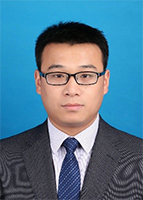Time: 26th Dce., 2018, 9:00-11:00 am
Venue: Conference Room 406 in Biotechnology Building
Lecturer: SHENG Xiang, Stockholm University

Abstract:
Enzymes are biological catalyst involved in almost all the metabolic processes, and offer a number of advantages over the traditional chemical catalysis, for example high catalytic power, mild working conditions and high selectivities. Detailed understanding of the mechanisms of enzymatic reactions is fundamental to the study of biochemical processes. Importantly, better understanding can provide valuable information to develop new medicines and new catalysts. Enzymes are complex and challenging. It has proven difficult in many cases to establish the details of enzymatic reactions from experiments alone. Computational modelling is increasingly important here, complementing experimental tools. Quantum chemical methods can provide information about enzymatic reactions that experiments cannot, such as the structures of transition states and intermediates. Modelling can also provide insight into the factors governing the high levels of stereo- and regioselectivity in many enzymes, which could be potentially exploited in the catalyst design.
Introduction:
SHENG Xiang, Ph.D., received a Ph.D degree in Shandong University in 2008,majoring in theory and computational chemistry. His mentor is Professor Yongjun Liu. From August 2014 to August 2018, he worked as a postdoctoral fellow at the Fahmi Himo Research group, Stockholm University, Sweden. He has been a Researcher since September 2018. The main research directions are computational chemistry methods to explore the mechanism and selectivity of enzyme catalysis, and molecular dynamics simulation methods to study the structural evolution of material systems and conformational changes of proteins. To date, more than 30 academic papers have been published in internationally renowned journals such as Angew. Chem., ACS Catal., FEBS J. and Phys. Chem. Chem. Phys..
Contact: Prof. ZHOU Yongjin, Group 18T6
Phone: 0411-84771060